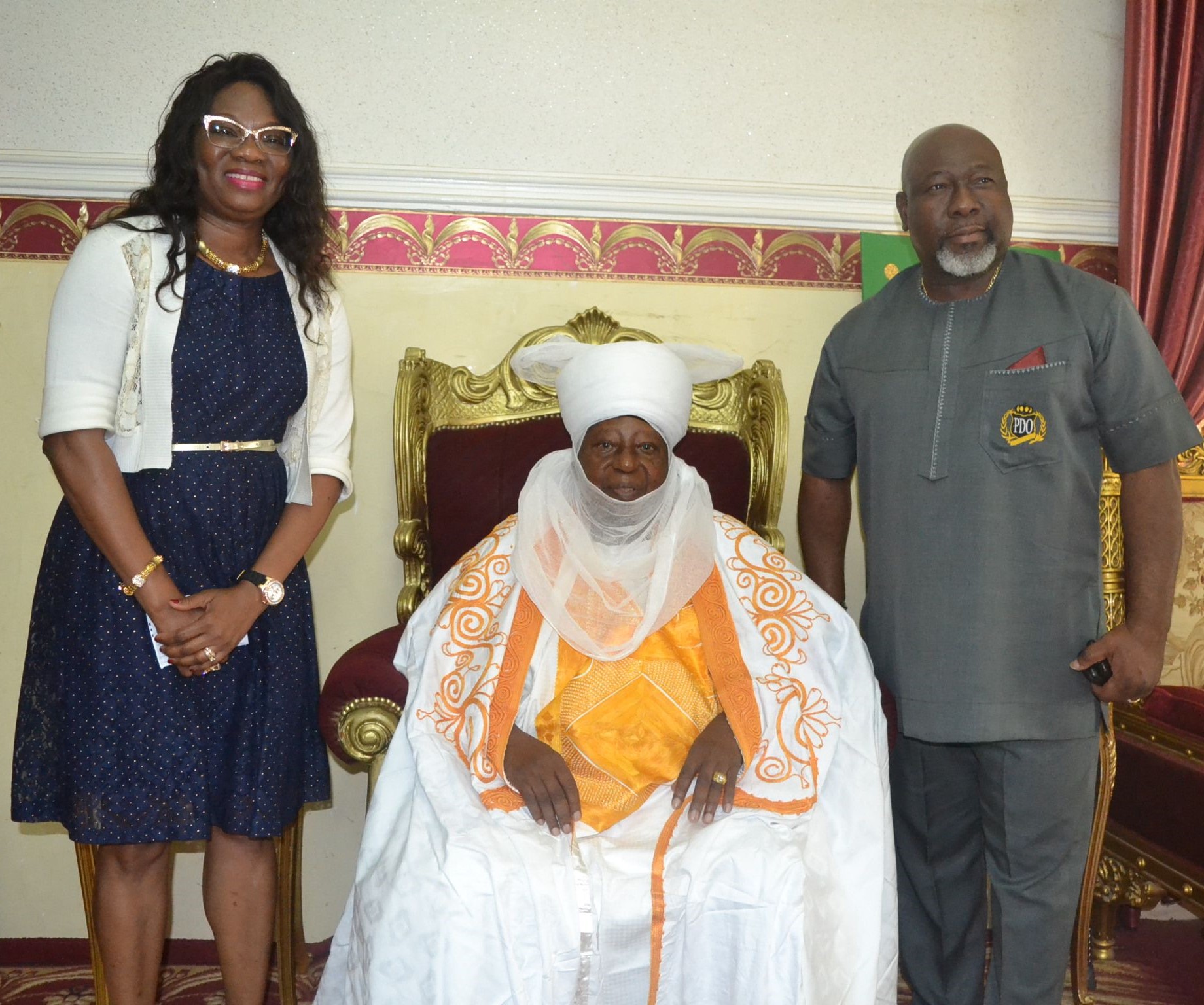Celebrating International Women’s Month: Dr. Folakemi Odedina

According to the UNESCO Institute for Statistics, women account for less than 30% of the world’s researchers. Reports also identify gender discrimination as one of the leading deterrents against women entering and excelling in fields relating to science, technology, engineering, and mathematics (STEM). In honor of International Women’s Month, we wanted to hear from some of our past National Institute of Allergy and Infectious Diseases (NIAID) fellows to learn their opinions on what barriers exist for women in STEM fields today, best practices to address those challenges, and how to alter the future of women in previously male-dominated fields by encouraging future generations to pursue leadership positions. Throughout the month of March, we will be highlighting these women and sharing their challenges and successes as equal contributors to the field of research.
“I am proud to have overcome several challenges to develop a global prostate cancer research program and blessed with a loving family. l wake up to do what I love every day, which is working with a consortium of scientists globally to understand and address prostate cancer in men of African descent.”
– Dr. Folakemi Odedina
Fellowship: 2018 National Cancer Institute (NCI) Cancer Research Training Travel Award (CRTTA)
Project: Principles & Practices of Behavioral Research for Cancer Prevention and Control in West Africa: An Africa Behavioral Research Center Program
Dr. Folakemi Odedina is a professor of Pharmacy and Medicine at the University of Florida and leads the Research Core of the Florida Health Equity Research Institute, a Florida Board of Governors-approved institute. She is also the Principal Investigator and Program Director for several NIH National Cancer Institute (NCI) divisions, including the Prostate Cancer Transatlantic Consortium (CaPTC) – a division that facilitates and supports recruitment and retention of minorities in biomedical research and biobanking for Black men’s research globally – and the Cancer Research, Education, and Engagement (CaRE2) Health Equity Center. For about 25 years, Dr. Odedina’s research, training, and community outreach activities have focused on addressing cancer health disparities and cost-effective community-based behavioral interventions to improve the health of minority populations, especially Black men. She has directed over 30 research projects, including genetic-environmental determinants of cancer disparity studies. Dr. Odedina has received multiple recognitions and awards for her contributions to the elimination of cancer health disparities globally.
Her awards include:
University of Florida Term Professorship (2018)
Williams Award for Innovation in Cancer care in Africa by the African Organization for Research and Training in Cancer (AORTIC) (2017)
Living Legend Award for innovations with health/economic impact from the 1st All Africa Clinical Trial Summit (2017)
INSIGHT Into Diversity Inspiring Women in STEM Award (2016)
University of Florida Research Foundation Professorship (2015)
1st Dr. Barbara Terry-Koroma Health Disparity Legacy Lectureship from the US Congressionally Directed Medical Research Programs (2013)
Role Model Award by Minority Access Inc (2005)
Pictured above: Dr. Odedina presenting at the workshop “Basics of Grant Writing for Accessing International Funding from Donor Agencies for Research and Training” at the Ahmadu Bello University in Nigeria in 2017.
What makes you most proud about being a woman in your field?
“Women in research, especially biomedical research, are faced with many obstacles and [forms of] discrimination. I can remember earlier on in my career that the perception was a woman had to choose between having a family and a career. I am proud to have overcome several challenges to develop a global prostate cancer research program and blessed with a loving family. l wake up to do what I love every day, which is working with a consortium of scientists globally to understand and address prostate cancer in men of African descent.”
What was your experience finding your first professional position?
“I approached finding my first professional position as an opportunity for me to find out if I was a good fit for the academic program and if the academic program met my career expectations. I found it exciting to interview, as it was an opportunity to network and share my dissertation research. [Starting] my job search in the last year of my Ph.D. gave me an opportunity to research the positions properly. I received a couple of offers and decided to join a program that provided the best opportunity for me to grow as a scientist.”
In your opinion, what changes – if any – are needed in the scientific system to attract more women scientists?
“I believe that there has been a lot of great progress since I joined the scientific system over 25 years ago. However, more still needs to be done to attract more women scientists. For example, the gender pay gap needs to be closed, and more women need to be in top administrative positions. In addition, to attract young women, the scientific system needs to be more family-friendly. Academic institutions can invest in having daycare facilities available for women with young children or make it easier for women with young children to work remotely.”



